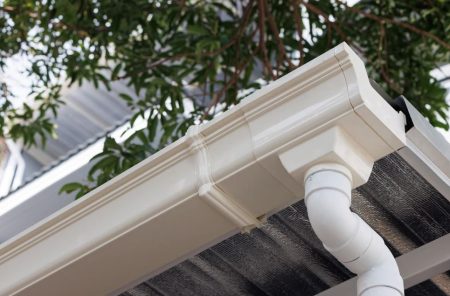Camping is not exclusive to the summer season: those who camp year-round will agree that winter camping is highly underrated. In the US, winter camping offers several perks you won’t experience in other seasons. The lesser influx of people makes it cheaper, there are not as many bugs or mosquitoes being a nuisance, your drinks stay cool, and it offers the bliss of pure silence and seclusion.
Of course, it also comes with its challenges and considerations. One of the most common is outdoor power needs. Read on to learn all you need to know about winter camping, how a camper generator or RV generator is an essential part of camping, and what you need for a comfortable trip!
Considerations for Winter Camping
Before you can experience the thrill of winter camping, there are some considerations you should go over.
Choose the Right Location
The first thing you should do is choose a suitable location for setting up your camp. You should pick a safe site that offers as much protection from the elements as possible. Ideally, you should choose a spot at least 200 feet away from a usable water source. Make sure the site you select is sheltered from the wind and is not in danger of being in the path of an avalanche.[1]
For first-time hikers, you can practice winter camping in your backyard or head to your closest private campground or state parks.
Checking the Weather Conditions
The next step is to check the weather conditions in your target destination. We would not recommend heading to a location below 40°F (4°C). Of course, if you have a higher tolerance for the chilly season, you can camp out in lower temperatures. Similarly, you should check the weather forecast in your selected location so there is no chance of you getting caught up in a winter storm.
Layering and Clothing
Winter camping does not have to be cold and miserable. You can stay perfectly warm and snuggly if you wear the right clothes. Layering your clothing is a lot more strategic than you think. For winter camping, you will want at least three layers of clothing.
- The base layer will help wick sweat off and keep you dry. It is best to opt for a long-sleeved, light base layer.
- The middle layer should act as an insulating layer, protecting your body from the chilly weather and trapping your body heat. A warm sweater or a puffy jacket with a hood made of wool or polyester would be perfect.
- Finally, you will have to wear an outer layer. Think of this as the outer shell protecting you from the elements. It should be breathable and waterproof in its material design.
The best part about layering is that you can remove the layers according to the variations in temperature throughout the day.
Basic Gear and Equipment
The next step is to gather the necessary gear and equipment. After your clothing, you should prepare equipment for sleeping and shelter. This should include a well-made tent, a sleeping bag, and a lightweight pillow. You can also bring a foam sleeping pad for added warmth. Next, add water bottles (preferably insulated) and some basic cutlery for your meals.
For food, try to bring easy-to-cook meals with high-calorie content. This can include a calorie-dense mix of nuts and trail mix, snacks such as granola bars and crackers, carbs like whole grain bread and oats, dehydrated meals such as pasta and soups, freeze-dried fruits and veggies, and hot beverages such as tea and coffee.
You will also need cooking utensils, soap, camping stoves, waterproof matches or fire starters, lightweight rope, and dry bags for hanging food at night.
Solar Generators Provide Basic Outdoor Power
You will notice that many of the equipment you carry will need power. You should have a generator with you to ensure a reliable and consistent power supply. However, a traditional fuel-based generator will be bulky, produce noise pollution, and can be costly to work with.
On the other hand, a solar camper generator is much more lightweight, cost-efficient, does not require any additional fuel to function, and is incredibly eco-friendly. It can also be used in any location you choose to camp at, so long as sunlight reaches you, which makes portable solar chargers the perfect choice for camping!
Safety Precautions
Winter camping is not the same as summer camping. It comes with challenges, and you must be appropriately prepared to navigate each.
To start, you should have the right navigation equipment, including a map, a compass, a GPS, and a camping lantern. Similarly, keep all the necessary aid nearby; you will need it in case there is a camping incident. This includes a first aid kit, a whistle, a flashlight, and an emergency shelter in case you lose a tent.
Apart from this, you should have a basic understanding of conditions such as frostbite and hypothermia. You must know how to recognize the signs and treat them accordingly.
Winter Camping Etiquette
Finally, you should follow winter camping etiquette during your exploration. A general rule of thumb is to ensure you clear away your trash and follow the “leave no trace” policy. Keep a dry garbage bag in your camping gear to store and safely dispose of waste when needed. Avoid making unnecessary noise in your environment so you do not disturb nearby campers, which is especially important if you are in a public camping ground.
Keep in mind that most public parks, wildlife reserves, and recreational sites are meant for use by all people. Respect the other people who may come after you!
The Need for Solar Generators for Winter Camping
Previously, we briefly talked about outdoor power and how a solar camper generator is your best bet when camping outdoors. Now, let’s get into details because there are several occasions where a camper generator will come in handy.
Hydration
You will need a reliable power supply so you can remain hydrated during your trip. Your drinking water may freeze in lower temperatures unless it is properly stored. The solar panels in the solar generator will absorb the sun’s energy and use it to generate power. This power is used by water heaters to heat the water to room temperature, keeping it in liquid form so it is suitable for drinking. It will also help heat your hot drinks, such as tea and coffee, to keep you warm.
Winter Cooking
To make the best of your trip, you will want well-cooked meals. But you cannot have food without the proper cooking equipment, and those demand power. A camper generator will power up your portable stove, pressure cooker, blender, microwave, toaster, electric cooker, and more. You can use power from your camper generator to make your favorite instant noodles, heat up some broth, or brew a cup of steaming coffee.
Heating
Keeping yourself and your camp warm is an integral part of winter camping. Without heat, there is a risk of falling ill or even becoming a victim of hypothermia. It is recommended to bring along a small electric space heater to keep the inside of your camp warm or an electric blanket for added warmth.
Ensuring Communication
When camping, you will probably be in a remote location, and there are chances you will be cut off from the rest of the world. You should have a camper generator nearby to keep your essentials powered to prevent this from happening. This includes your smartphones, iPads, and laptops.
You may also choose to bring two-way radios, GPS devices, and emergency satellite connection devices, all of which can be powered by a camper generator.
Powering Photographic Equipment
You will want to bring back sweet memories from your trip. For this, your photographic equipment needs to remain functional. Most cameras you see function on a rechargeable battery. Of course, you may choose to photograph your surroundings using your handy dandy smartphone. Regardless, you will need a camper generator by your side to keep this equipment powered at all times.
What to Consider When Selecting a Generator for Winter Camping?
There are several things you must consider before you select a camper generator for your winter camping trip, including the following:
Capacity and Power
The battery capacity and power will give you a general idea of how much wattage of electricity it can deliver. The final battery capacity you need will depend on the number of devices you bring along and their relevant power demands. You can draw up a rough estimate accordingly and choose the right camper generator for your trip.
Output Options
A solar generator for RV, or one specially designed for camping, tends to provide multiple output options. This is because it is highly unlikely you will only need to power one device at a time. To run multiple devices simultaneously, a camper generator with multiple outputs can be pretty useful.
Cold and Frost Resistance
Next, you must consider the build of the solar camper generator. This will dictate how well it will perform in cooler temperatures. Look for the operating temperature of the device and ensure the range includes lower temperatures. Moreover, you should choose a camper generator with lithium-ion batteries as they last longer in extreme temperatures.
Your solar panels will continue to function in chilly weather since they need the sun’s light only (not its heat), and so are not a matter of concern.
Noise Level
As you go camping, you will want to enjoy the solitude and serenity that nature provides. Having a noisy, disturbing camper generator with you will take away that experience. Find a reliable, quiet generator for RV that won’t create too much noise while it operates.
Best Solar Generators On The Market for Winter Camping
Looking for a reliable travel trailer generator for your next winter camping adventure?
Considering the many criteria that dictate which camper generator you should choose, finding the right one for your camping trip can be challenging. We recommend that you rely on Jackery’s range of solar generators, one of the leading solar generator providers around the globe. The following are two excellent examples of Jackery’s top-performing models.
Jackery Solar Generator 2000 Plus
The Jackery Solar Generator 2000 Plus offers a powerful power station with a mega 2 kWh power capacity, capable of being expanded up to 24 kWh. With the addition of multiple battery packs and solar panels, The Jackery Solar Generator 2000 Plus is the ideal type for winter camping.
It offers a long-lasting battery cell with over 4000 charging cycles and a fume-free, whisper-quiet generator that is perfect for use outdoors. It further offers quick charging capabilities, fully recharged in just 2 hours with six Jackery SolarSaga 200W Solar Panels.
The best part is its high-temperature resistant battery, offering an operating temperature of 14 to 113°F (-10 to 45°C).
Jackery Solar Generator 3000 Pro
A similar model is the Jackery Solar Generator 3000 Pro, which offers a much larger battery capacity, around 3024Wh, and can power up to 99% of all your outdoor appliances.
The power generator offers ultra-fast charging capabilities, allowing you to fully recharge the battery pack in just 6-7.5 hours. Its ultra-low noise level, just around 30 dB, also makes it a peaceful companion for your camping trips. Like the Jackery Solar Generator 2000 Plus, the Jackery Solar Generator 3000 Pro also offers a strong temperature range, capable of performing even between 14°F to -4°F (-10°C to -20°C).
Conclusion
Winter camping can be an existing experience for many. But you can only enjoy your getaway when you are fully prepared. Having a solar camper generator means having a dependable power source, ensuring your safety and convenience at all times, regardless of the location you choose to camp at!
Choosing the right camper generator can be a difficult choice. Providers like Jackery are the way to go. Jackery’s range of reliable solar generators emerges as the go-to choice and can go a long way in providing you with the power you need to explore freely.













